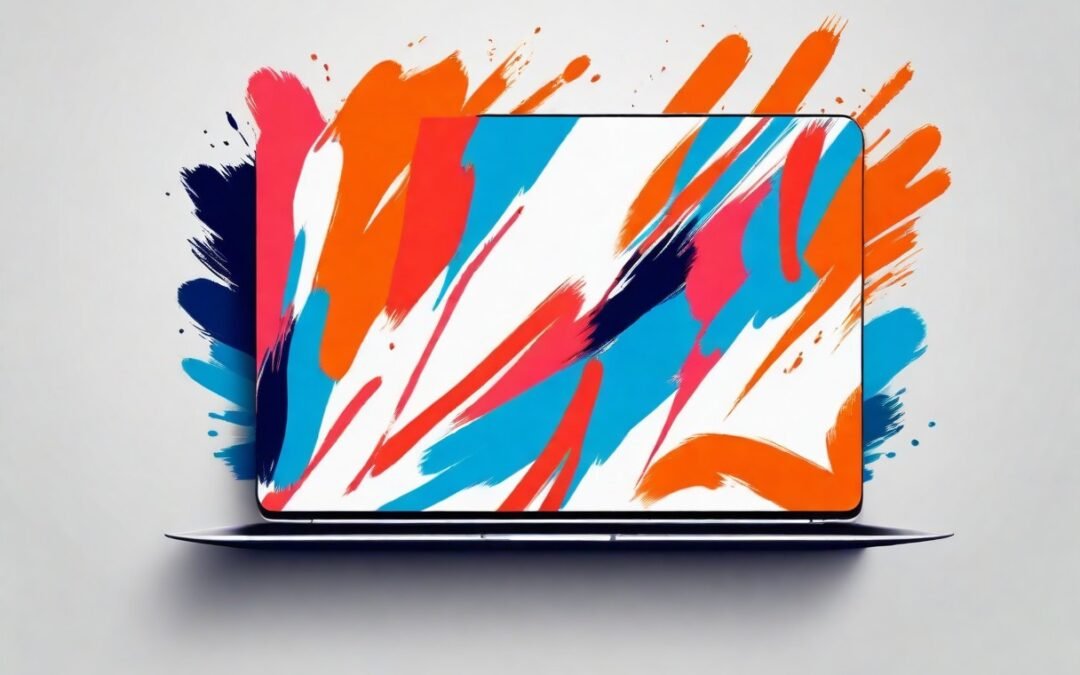Attention To Detail Interview Questions
Attention to detail is a crucial skill sought after by employers in various industries. It reflects an individual’s ability to thoroughly and meticulously analyze, comprehend, and act upon information, tasks, and projects. During job interviews, employers often evaluate this skill to ensure that their potential hires can contribute to the company’s success. In this article, we will explore the importance of attention to detail, common interview questions to assess this skill and tips on how to excel in answering them.
The Significance of Attention to Detail
Attention to detail is a multifaceted skill that plays a pivotal role in an individual’s professional life. Here are some reasons why it is highly valued by employers:
Error Reduction With Attention To Detail
Attention to detail helps in minimizing errors, which can be costly and time-consuming to rectify. Employees who pay attention to the finer points of their work are more likely to produce accurate results.
Quality Assurance
It ensures that products and services meet high-quality standards, enhancing customer satisfaction and loyalty.
Interview Questions Efficiency
Being detail-oriented improves work efficiency as individuals can identify and address potential issues before they escalate.
Interview Problem Solving
A keen eye for detail aids in problem-solving by identifying the root causes of issues and proposing effective solutions.
Organizational Success
Companies that emphasize attention to detail are more likely to achieve their goals and maintain a positive reputation.
Common Interview Questions to Assess Attention to Detail
-
Can you provide an example of a project where attention to detail was crucial to its success?
This question assesses your ability to recognize situations where attention to detail is vital and how you applied this skill to achieve a positive outcome. When answering, provide a specific project, describe the details you focused on, and explain how your attention to detail contributed to success.
-
How do you ensure accuracy in your work, especially when working on complex tasks?
In your response, highlight your approach to maintaining accuracy. Mention techniques like double-checking, using checklists, or seeking feedback from colleagues. Provide an example of a situation where your diligence in maintaining accuracy was critical.
-
Tell me about a time when you spotted an error that others had missed. What did you do?
This question gauges your ability to identify mistakes and your willingness to address them. Discuss a real-life example where your attention to detail led to error detection, and explain how you handled the situation. Emphasize the positive outcome.
-
How do you prioritize tasks when facing multiple deadlines? How do you ensure nothing is overlooked?
This question assesses your organizational skills and your ability to manage multiple responsibilities without neglecting important details. Describe your approach to task prioritization, such as creating a schedule or using project management tools.
-
What steps do you take to review documents or reports before finalizing them?
In your response, outline your document review process. This might include proofreading, fact-checking, and ensuring formatting consistency. You can also mention any software or tools you use to aid in this process.
-
Have you ever encountered a situation where a minor detail caused a major problem? How did you handle it?
This question evaluates your ability to recognize the significance of small details and your problem-solving skills. Share an example where a minor detail led to a significant issue and explain how you resolved it.
Tips for Excelling in Attention to-Detail Interview Questions
Prepare with Examples
Before the interview, identify specific examples from your past experiences that demonstrate your attention to detail. Having these examples ready will make your responses more convincing.
Be Concise
Keep your answers focused and concise, addressing the question directly. Avoid unnecessary details or lengthy explanations.
Use the STAR Method
Structure your responses using the Situation, Task, Action, and Result (STAR) method to provide a clear and structured account of your experiences.
Highlight Positive Outcomes
Emphasize how your attention to detail positively impacted projects, processes, or outcomes. Employers are interested in the tangible benefits of this skill.
Show Adaptability
Illustrate your ability to adapt your attention to detail to different situations, whether it’s a creative project, data analysis, or administrative tasks.
Ask for Clarification
If you are unsure about the details of a question, don’t hesitate to ask for clarification. It’s better to fully understand the question before providing an answer.
Your interviewer has answers to your queries. Take advantage of the situation!
You’re on your way to securing your next, or first, job, and everything is going swimmingly. You’ve been contacted to schedule an interview after carefully applying to a number of positions. Woo-hoo! You get up and start doing your happy dance.
That is until you realize you’re just a third of the way to your dream job. To stand out among the other job seekers during your interview, you must now knock the hiring manager’s socks off.
According to a 2015 CareerBuilder Candidate Behavior Study, nearly half of all candidates who make it through the phone interview or first screening are dismissed following a poor in-person interview, according to 67 percent of employers questioned.
But don’t get too worked up over it. This isn’t going to be you. You can do it. You’ve gone over all of the most typical interview questions and are prepared to answer any that are thrown your way. And, unlike many other job seekers, you are aware of the importance of preparing questions for your interviewers.
I’ve included some questions to ask your interviewees that will make them laugh.
Many job applicants, in my experience, do not ask questions that demand some thought and demonstrate genuine curiosity and concern. You’ll stand out from the crowd if you ask the appropriate questions during your job interview. It’s tough to predict what will work and what won’t, therefore I’ve compiled a comprehensive list of the finest interview questions.
Interview questions for your future boss or coworker include:
What do you enjoy most about working here?
What drew you to this profession and industry?
What kind of leader are you? What is the leadership style of my prospective boss?
What are some of your most pressing concerns or issues right now? What is it that keeps you up at night?
How did you get started in your profession? How long have you worked for the firm?
What has been the trajectory of your professional life? Is there anything you’d change about the process?
What have been some of the most difficult hurdles you’ve faced throughout your career? How did you cope with them, or how do you deal with them now?
What do you believe has contributed to your success in this position?
Which method of communication do you prefer? Email, phone, or face-to-face?
Job-related interview questions include:
What made you decide to hire for this position?
How long has the job been available? (If applicable, explain why the post has been open for such a long time.)
What was the personality of the former occupant of this position?
Are you seeking someone who has the abilities and experience to do the work straight away, or are you willing to recruit and train the right person for the job?
How are this job’s aims and objectives set?
What are the top three priorities you’d like me to focus on in the following year if I were hired?
What qualities does the ideal applicant for this position have?
What more can you tell me about the job that isn’t in the job description?
What do you think the most likely cause for someone to fail in this role is?
I’ve previously worked for larger corporations (or smaller companies, non-profits, etc.). Given this, do you think I’d be effective working for a company like yours?
Is there a set work schedule? Is it flexible, or fixed, or do you have options?
Do you have any concerns regarding my credentials? (This is a bold move!)
What does a typical day, week, or month in this position look like?
When is the most difficult time of the month or year to work in this position?
How can I advance in this position?
In an ideal world, when do you think this role will start?
What is the time frame for making a decision on this job? When would be a good time for me to contact you again?
Questions about the team in the interview:
Could you tell me a little bit about the team with which I’d be working?
What are the major positions and groups with which I will be collaborating? What are the personalities and leadership styles of those individuals and groups?
What are the three most difficult challenges your team has when collaborating with different departments inside the company? What do you do to lessen the difficulties?
What is the most pressing issue confronting your team right now?
What is the group’s approval process for projects and tasks?
Organizational interview questions include:
What types of people do well in this environment?
What is the culture of your organization like?
What kind of performance evaluation system does the company use? As an employee, how can I get the most out of the process?
Employees are given feedback in a variety of ways and at different times.
What is the nature of your award and merit system? Do you have a performance-based reward system in place? What types of incentives do you provide to your employees? What kinds of accomplishments or characteristics are rewarded?
What types of prospects for promotion exist within the group and company?
What kinds of data are shared with employees? Is information about sales, profitability, expenses, pay ranges, and so on shared?
What kind of access do we have to the company’s top executives? Is there a policy of open doors in the company?
What kind of educational or training opportunities does your company provide or encourage?
What is the organization’s most pressing issue right now?
What have been the organization’s most significant achievements in the last year?
How does your business deal with the generational divide that exists in today’s workplace? How do you deal with generational disparities, such as communication gaps, or how do you work around them?
What do you have to say about your company’s ambitions for new services, products, or expansion?
What kinds of volunteer and community service opportunities does the organization promote?
In the last year, how many people have you hired? How many of them were new hires and how many were experienced?
What is your organization’s attrition rate?
When it comes to asking and answering interview questions, be genuine.
It’s just as vital attention to detail interview questions to ask the interviewer as it is to prepare to answer the questions they’ll ask you. Take your time and consider your responses and questions. Use your best judgment when deciding how many interview questions to ask. Keep asking questions until you feel it’s time to quit if time seems to be flying by and the interviewer is engrossed in your conversation. It’s advisable to go into an interview with at least three to five questions in mind and go from there.
Attention to detail interview questions is a valuable skill that can set you apart in the competitive job market. During interviews, employers use specific questions to assess your ability to focus on the finer points of your work and how it contributes to overall success. By understanding the significance of attention to detail, preparing relevant examples, and delivering concise and structured responses, you can demonstrate your proficiency in this skill and increase your chances of securing your desired position. Remember, it’s not just about what you say, but how you say it that will leave a lasting impression on your potential employer.
Are you worried about your upcoming interview? Today, get help from an optimized resume professional interview coach!





0 Comments